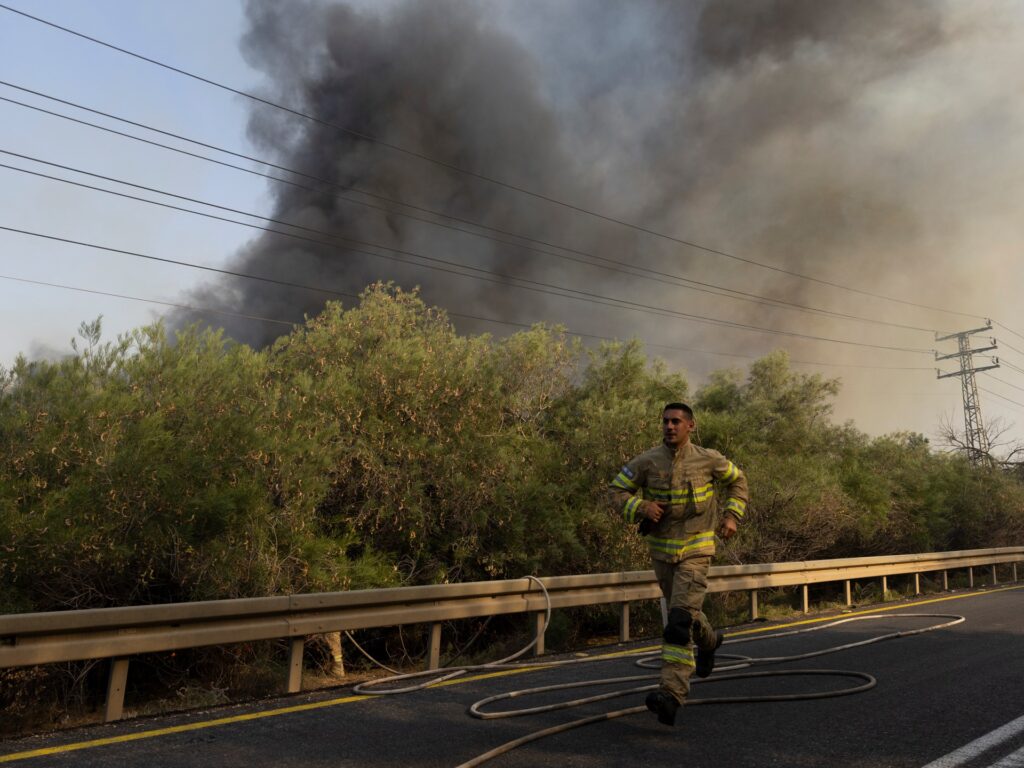10/3/2024–|Last updated: 10/3/202403:16 PM (Mecca time)
An American researcher believed that the assassination of the Secretary-General of the Lebanese Hezbollah, Hassan Nasrallah – last Friday – represented a turning point in the Middle East, because during his reign his party became Iran’s closest ally, the decisive deterrence force, and the main pillar of the “axis of resistance” that it adopted.
Dalia Dasa Kay, a researcher at the Burkle Center for International Relations at the University of California, Los Angeles, described Nasrallah’s killing as a harsh and shocking blow not only to Hezbollah but to the coalition of Iranian-backed forces across the region. As for Israel, his killing was “logical, if not bold,” and was a step in its escalation plans, and this was evident in its alleged ground invasion of Lebanon, which unleashed a large-scale attack on Hezbollah.
She stated in her article in the American magazine “Foreign Affairs” that Israel has always shown – since the attack by the Islamic Resistance Movement (Hamas) on it on October 7, 203 – its willingness to bear greater risks in its war against Hamas’s regional supporters, including Iran and Hezbollah.
She pointed out that many Israelis believe that a return to the situation that existed before the Hamas attack last year would be unacceptable, pointing out that the main lesson learned from the attacks is that Israel can no longer afford to merely manage and contain threats on its borders. “It needs to Decisive military victories regardless of the costs.”
She expressed her belief that it is unlikely – in light of the current escalation – that American and international efforts will succeed in urging the warring parties to reach a diplomatic settlement to the war in Lebanon or Gaza, even if calls for a ceasefire have become more urgent in the face of the new direct confrontation between Israel. And Iran.
But she does not believe that Israel is currently seeking a diplomatic way out, but rather is looking for a complete victory.
In her article, Dalia considered that Nasrallah was a sworn enemy, and the Israelis and many others in the region rejoiced in his demise. She added that many Israelis support eliminating the “weakened” Hezbollah in Lebanon, and even opposition leaders support the Israeli ground operations currently underway.
But she went back to saying that once this enthusiasm fades, the Israelis will begin to ask their leaders about the true meaning of victory.
If victory means – according to the American researcher – escalation and tactical military successes against Hezbollah and Iran, then Israel has already succeeded. But such a victory is “ephemeral,” because it entails unpredictable costs and consequences, and seems inseparable from any serious momentum toward peace with the Palestinians, “who constitute the most serious existential challenge to Israel.”
The researcher expects that there will not be a better “next day” in Gaza or the rest of the region. Talk in Washington about taking advantage of Nasrallah’s death and Iran’s weakness to “reshape” the Middle East “takes us back to the misguided beliefs” that led the United States to invade Iraq in 2003, which had a disastrous effect.
She believes that without a change in the current Israeli government, Israel and its neighbors may be heading towards a completely different day characterized by the Israeli reoccupation of Gaza and perhaps even southern Lebanon, in addition to strengthening Israeli control over the West Bank, if not annexing it. This is a recipe not for victory, but for permanent war, as she put it.
It goes on to say that many clung to the illusion that the conflict on Israel’s northern front could be contained, because neither party wanted a large-scale war.
It highlighted that fighting continues in Gaza, and that both Israel and Hezbollah crossed red lines with attacks that reached deep into Israeli and Lebanese territory and exposed civilians to danger.
Dalia Kay believes that there are always two possibilities for a comprehensive war to break out in one of two ways. The first is that a miscalculation has occurred; That is, an attack by one party may lead to unexpected losses and force the other party to enter into an unwanted war.
Another possibility is that a large-scale war could break out as a result of a change in strategic calculations. That is, one of the two concerned powers believes that waging war is better than avoiding it.
However, according to the article, it is likely that the United States will resist expanding the scope of the war, after Iraqi militias allied with Iran threatened to target Americans if Washington intervened.
However, the author believes that Israel may prefer to return to shadow war tactics that rely on intelligence operations and assassinations within countries. However, the current escalatory climate with often unpredictable war outcomes means that nothing can be ruled out.
At the conclusion of her article, Dalia Kay concluded that it is not necessary for a person to believe in a “new Middle East” where Israel is fully accepted, trades and interacts with its neighbors, in order to realize that there is a different and realistic path that must be taken forward, noting that it is not the path of permanent occupation and war. Eternity.

